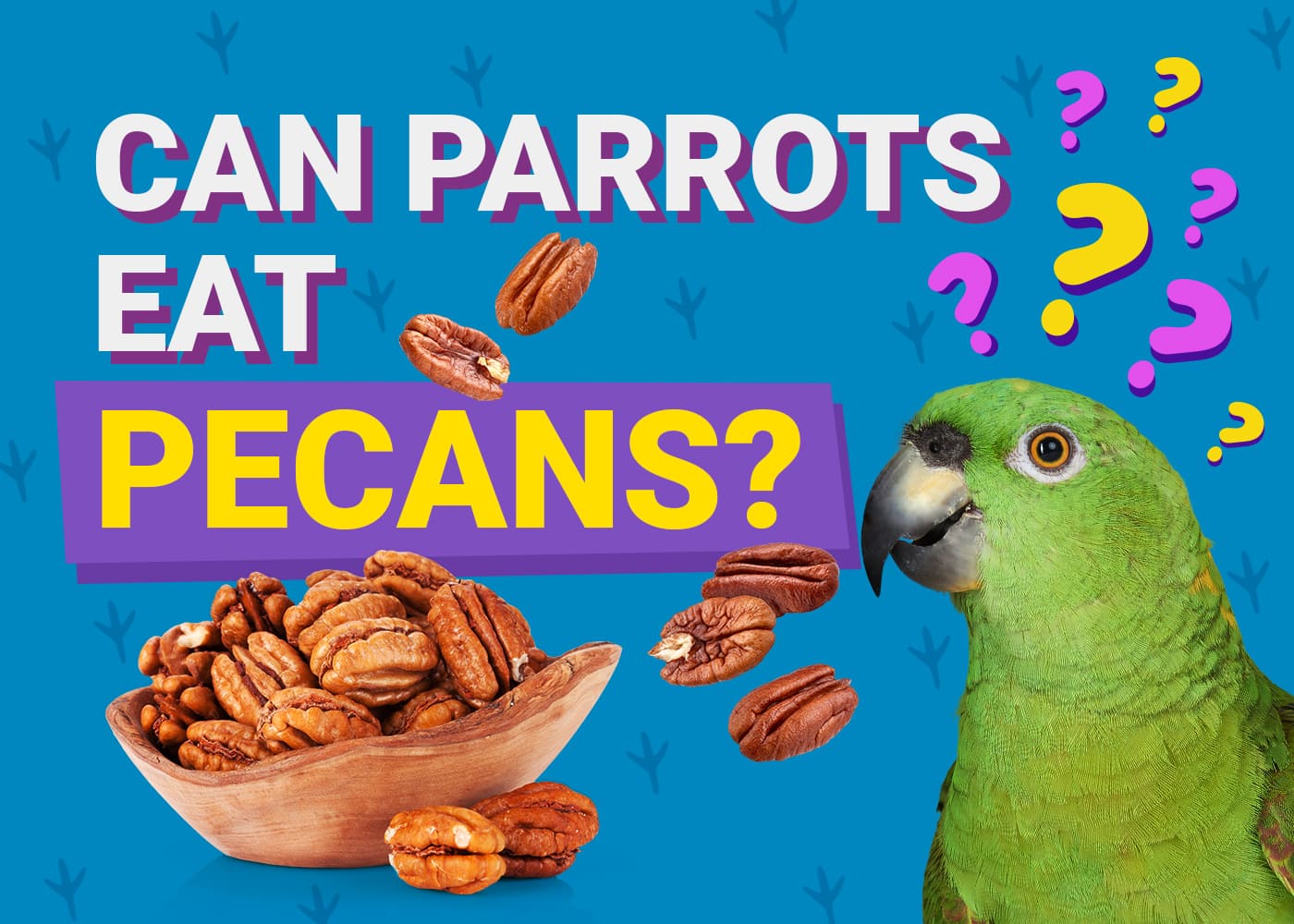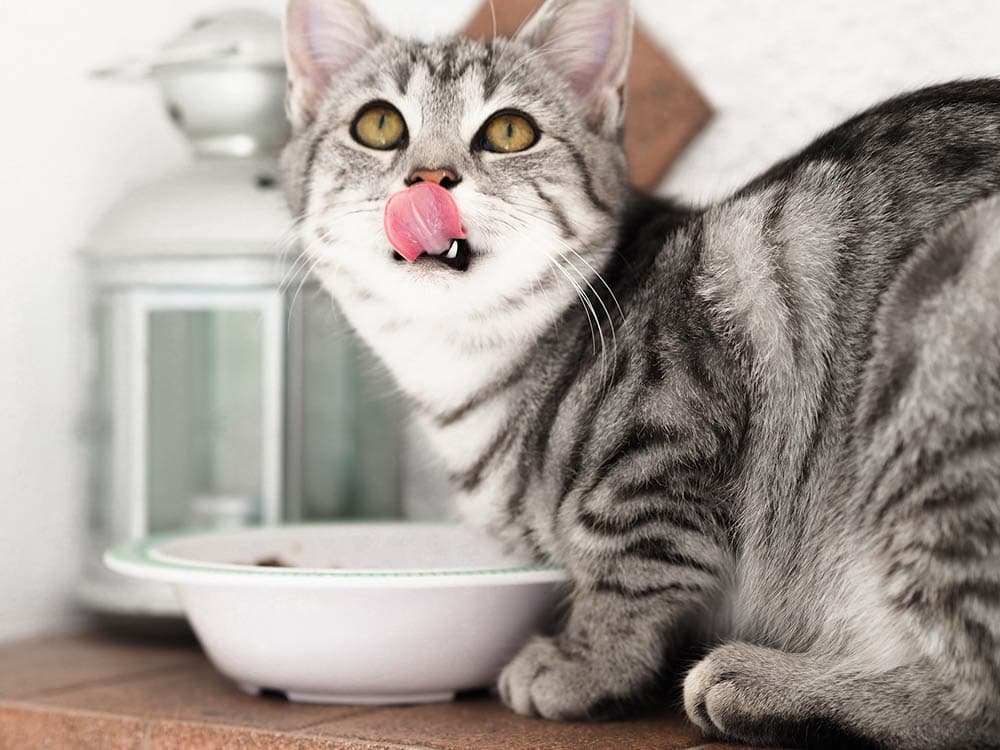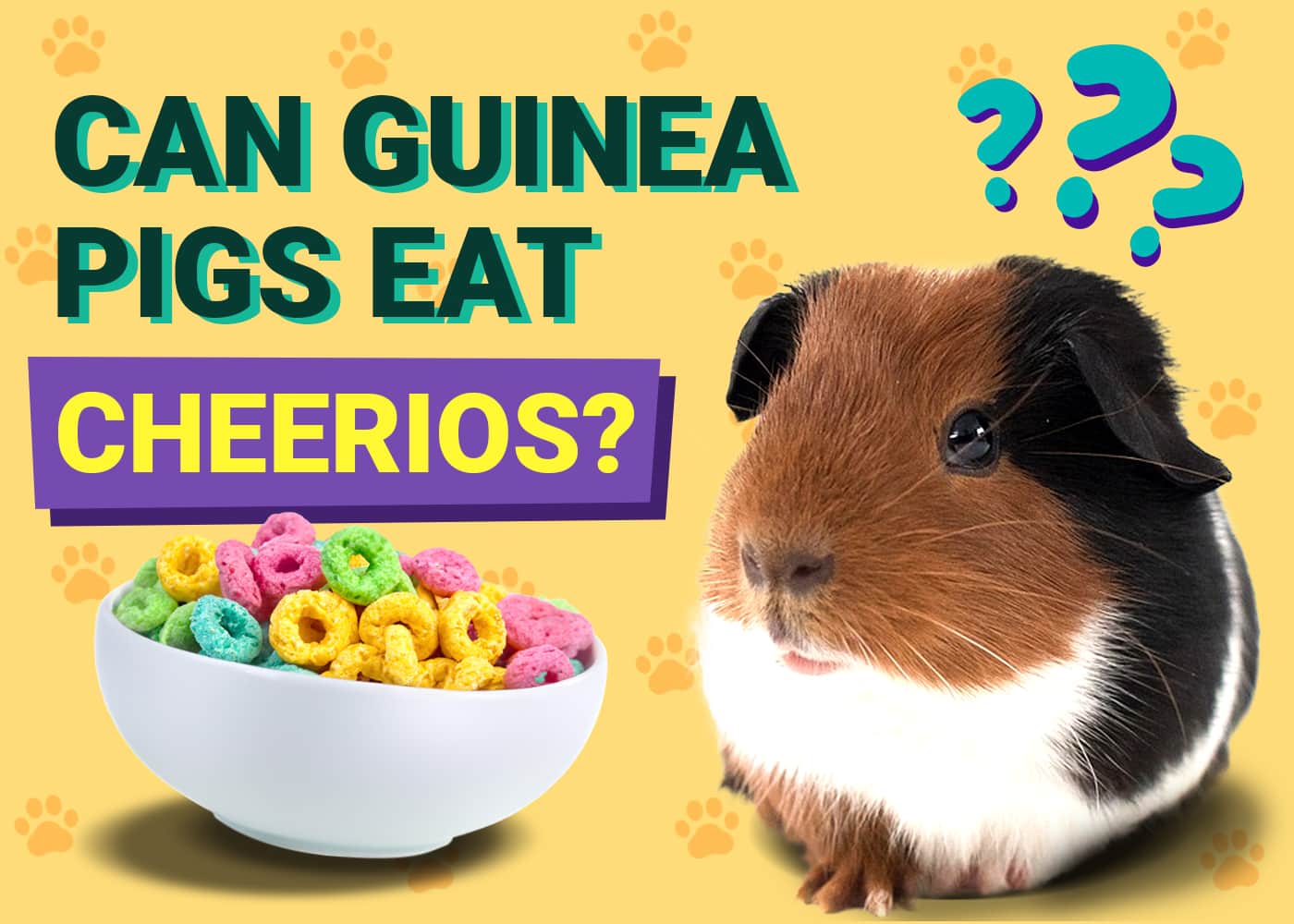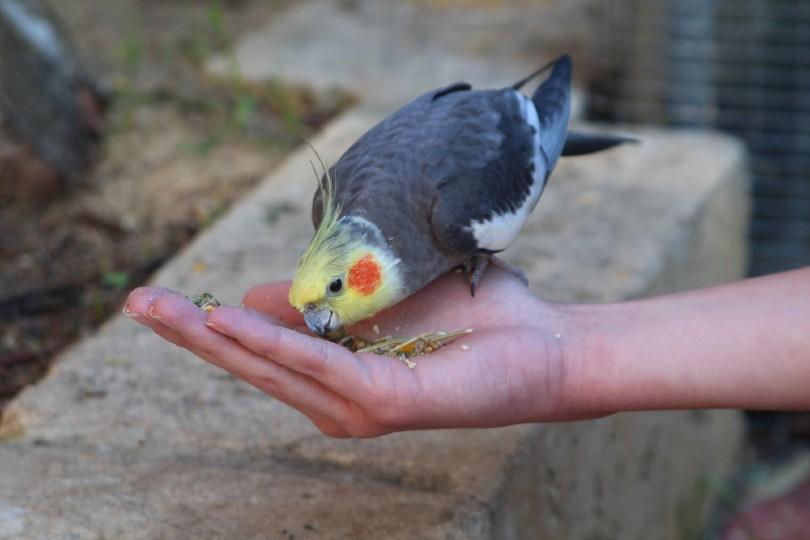Click to Skip Ahead
Giving your parrot a species-appropriate, balanced diet is one of the best ways to support their long-term health. Fortunately, in the last few years, a lot of progress has been made in the diets available for pet parrots. Though many pet parrots were once offered just nuts and seeds, present-day recommendations caution against their inclusion in a pet parrot’s diet.
Nuts and seeds can be offered to your parrot, but they should only account for a small minority (around 10–15%) of their diet; though certain species might benefit from a higher quota. Pecans are a safe nut that you can incorporate into the diet of most pet parrots. Let’s explore pecans in greater detail, and briefly touch base on the diet of pet parrots.

Parrots & Pecans
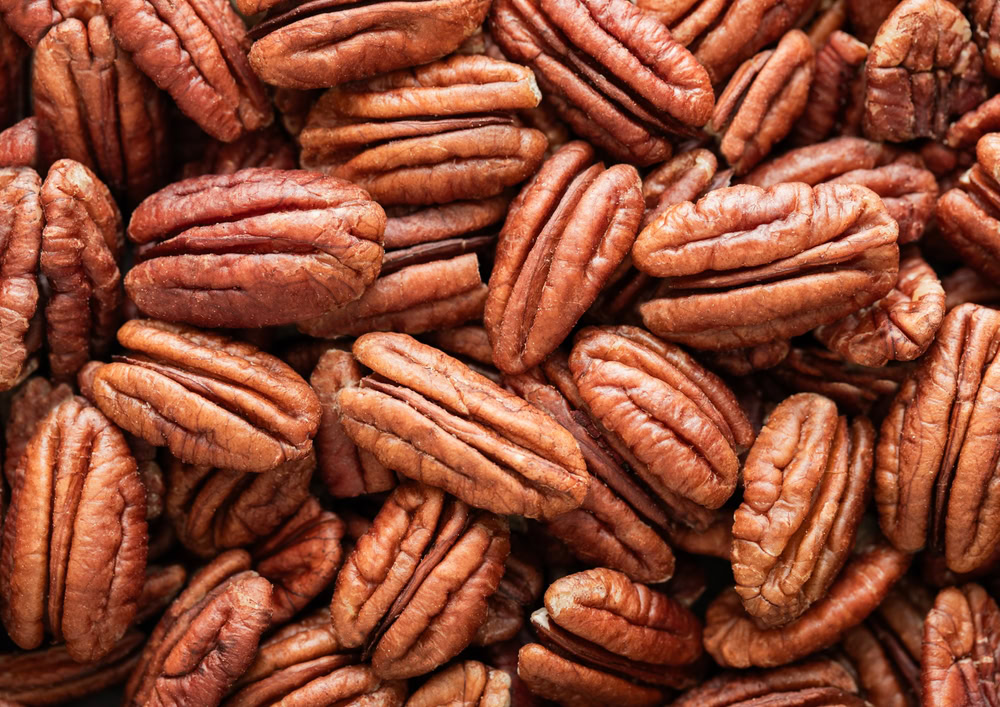
Pecans are safe for parrots, and some parrot species have been documented eating pecans in the wild1. Though safe from a nutritional perspective, pecans might not be an appropriate food option for some parrot species. This is because certain parrot species, such as rainbow lorikeets (Trichoglossus moluccanus) have very specialized dietary needs that leave little to no room for food items such as pecans. However, other species of parrots with a more flexible nutritional profile can definitely eat pecans.
Though you should discuss your pet’s needs with your veterinarian, as a guide, the larger parrots, such as those of the genus Ara (macaws), most parrots of the family Cacatuidae (cockatoos), African greys, and most of the New World parrots (such as Sun Conures) can safely be offered pecans.
Smaller parrots such as budgies (Melopsittacus undulatus) and cockatiels (Nymphicus hollandicus) may eat pecans, however, would likely be better off with healthy seeds instead of pecans. They may also struggle to open a pecan on their own.
Are Pecans Healthy For Parrots?
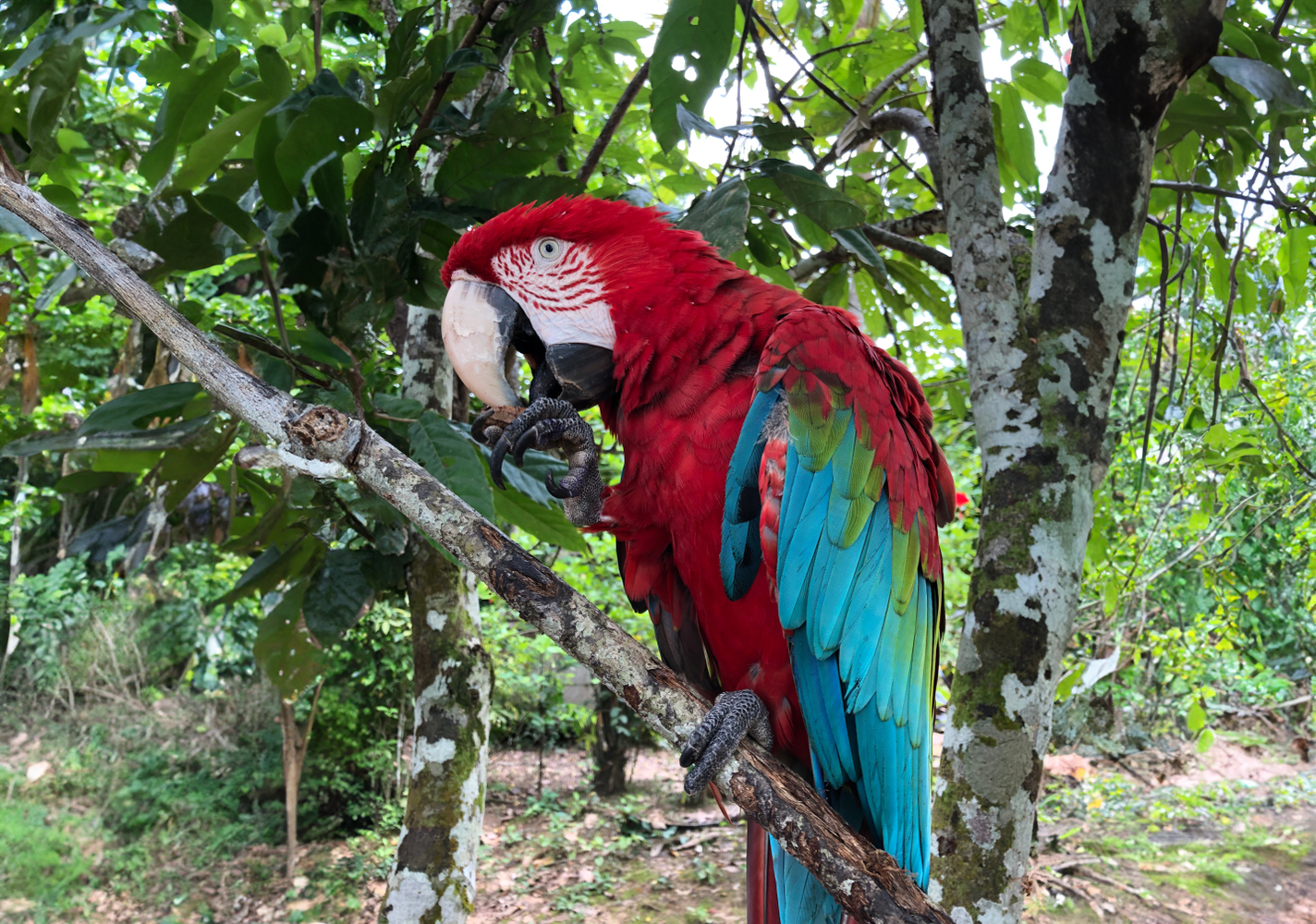
Pecans may offer your parrot some health benefits if offered in moderation. They are incredibly calorie-dense, and as such, they are a great source of energy for parrots being trained for long-duration outdoor flights. They also offer parrots some vitamins and minerals (though they are not a complete source of micronutrients for parrots). A very emaciated parrot would definitely benefit from the extra calories that pecans provide.
Life stages that require extra energy and protein (such as molting or breeding) may warrant the greater inclusion of foods like pecans in a parrot’s diet as well. However, do note that nuts higher in protein than pecans are more favorable for a molting parrot.
If your parrot enjoys pecans a great deal, they can be a fantastic incentive for training them to perform certain tricks as well. Additionally, if a parrot does enjoy a pecan, it’s also fair to say that they will offer your pet a great deal of enrichment as well.
On the other hand, the high energy content is a pecan’s ultimate downfall. Though just about any nut is very calorie-dense, pecans contain more fat 2 than some other commonly incorporated nuts in a parrot’s diet, such as walnuts 3 and almonds 4.
What Should You Feed Your Parrot?
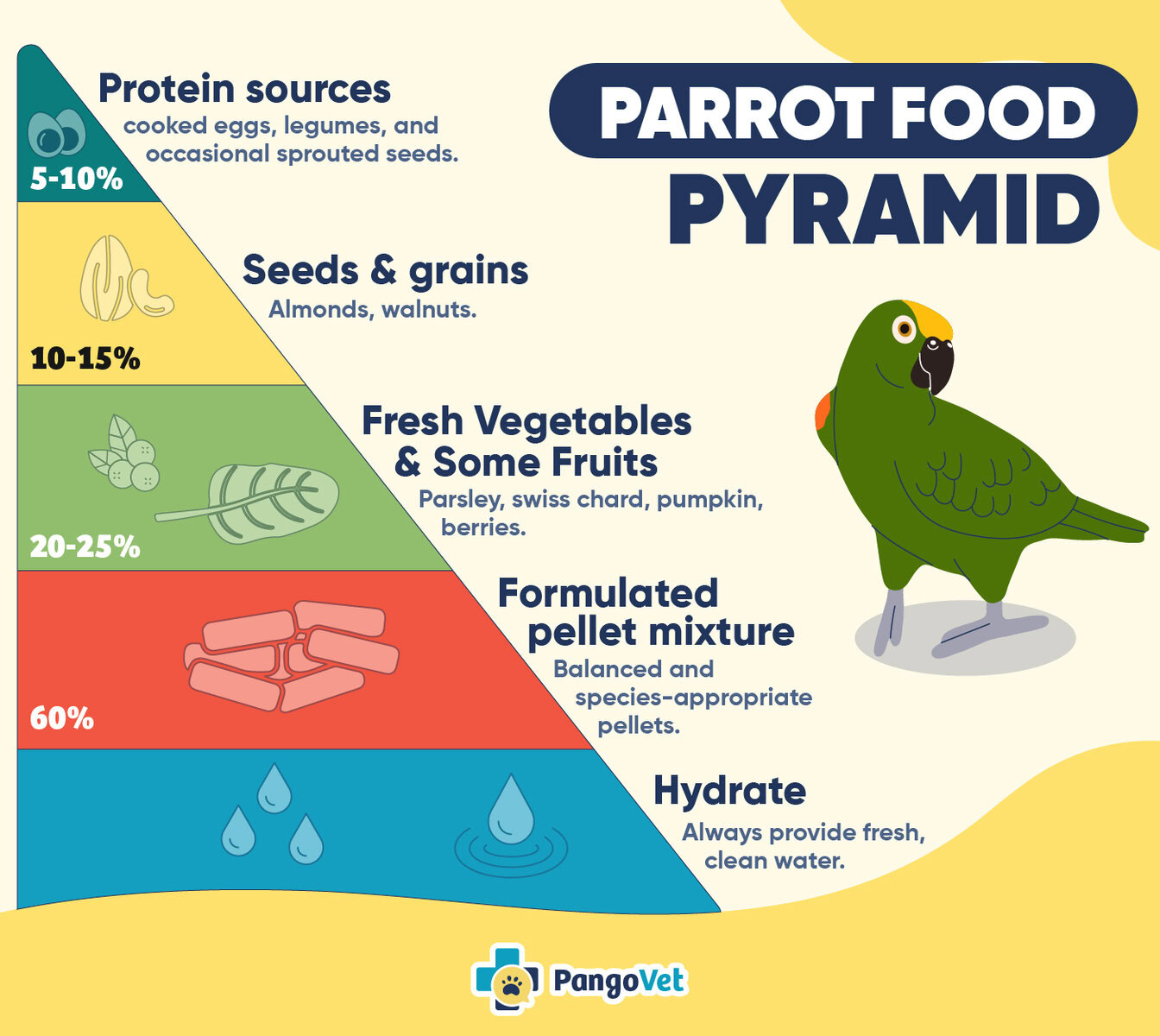
It is certainly impossible to provide parrots with the same foods they would find in nature. Since not all birds are the same, it is essential to provide your parrot with a varied diet. The nutritional requirements of a bird depend on factors such as age, type of life (breeder versus companion), species, and environment. The foods you choose also need to be practical, otherwise, most of us will go simple and give new seeds. Providing a balanced diet for your bird is a commitment you made when you first adopted it and it is essential that you stick to it to keep your pet healthy:
- A high-quality feed should make up 60%-80% of the diet of most parrots. Choose a good quality feed. Make sure it is sold sealed and check the expiration date. It is best to choose a feed that does not contain additives such as colorants.
- The rest of the diet should consist of vegetables and other table foods. Besides, vegetables are better than fruits. Yellow and orange vegetables (squash, sweet potatoes, carrots, pumpkin) and dark green leafy vegetables (kale, salad) are examples of good choices. They can be given cooked or raw.
- Fruits such as figs, raspberries, papayas, apricots, and mangoes are better than apples, grapes, and oranges. Pasta, whole-grain slices of bread, cereals, legumes, and brown rice are great choices. There are several bird bread recipes that are easy to make and store. Table food should not be left available to the bird for more than 4 hours.
- Seeds and nuts can be offered but should not account for more than 20% of the diet for large parrots. Pecans, walnuts, cashews, almonds, and other nuts can be offered daily but in reasonable amounts. Indeed, large species such as parrots require more protein and fat in their diet.
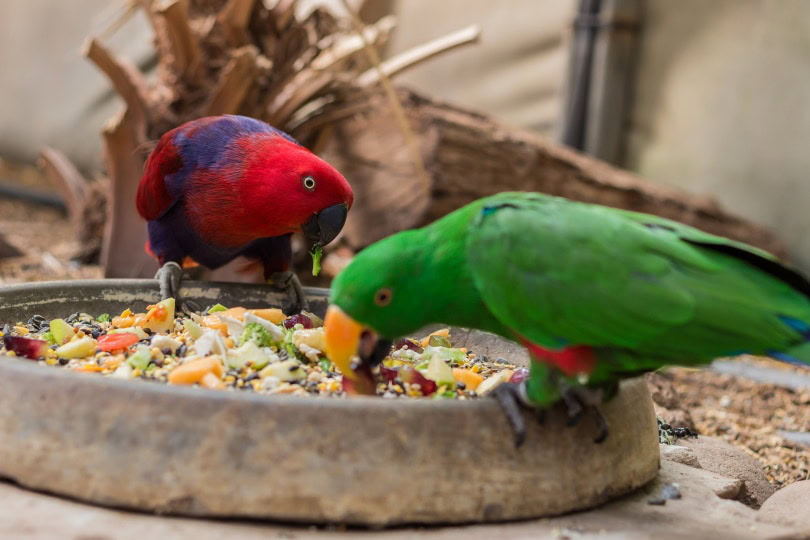

Conclusion
Nuts such as pecans, almonds, walnuts, hazelnuts, and Brazil nuts contain a very high protein content, but also fat. Some species of large parrots, such as macaws, for example, need nuts in their diet to provide them with an adequate protein intake.
Offer the nuts with the shell, without cracking them in advance, to make your bird’s beak work. Make sure the nuts are fresh before offering them because mold could cause serious health problems for your pet.
Related Reads:
Featured Image Credit: Piqsels
